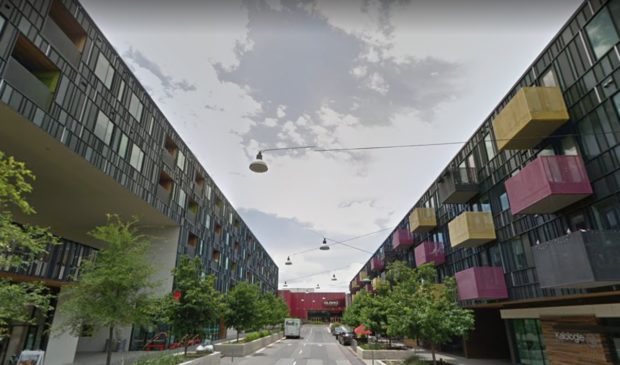VMU changes not happening anytime soon
Wednesday, April 20, 2022 by
Jo Clifton Without taking a vote, City Council members decided during Tuesday’s work session that they would postpone Thursday’s vote on the most recent proposals to enhance affordability options within the zoning category known as Vertical Mixed Use, or VMU, and the new category VMU2. Mayor Steve Adler proposed a discussion at Council’s work session on May 17 and a vote at the Council meeting on June 9 or 16, right before Council takes its summer break.
Adler suggested that he and his colleagues discuss the proposed changes before that vote, as well as hold public meetings to hear community input.
Last fall, Council Member Ann Kitchen presented the idea of allowing increased height, perhaps up to 90 feet, in exchange for additional affordable housing along the city’s corridors. Council approved a resolution in November supporting the changes and asked the Planning Commission to make recommendations.
Planning commissioners put together a working group to bring recommendations back to their colleagues and forward to Council. Members of the commission had serious disagreements over possible changes to compatibility requirements, and that is likely to be the major sticking point when the ordinance comes before Council.
As approved by the Planning Commission last month, VMU1 would have slightly increased requirements for affordable units, but would maintain the current 60-foot height limit. VMU2 would require additional affordable units while allowing developers to build up to 90 feet.
Council Member Chito Vela has proposed VMU2 developers be exempt from parking requirements as well as compatibility requirements so buildings could theoretically be considerably closer to single-family homes.
Kitchen’s response, as she outlined on the City Council Message Board, was to propose a “substitute to allow for future discussions related to compatibility along the transit corridors and align with the Acuña decision.” That court case established that the city must advertise changes to city zoning regulations and give property owners the right to protest those changes.
Kitchen wrote, “My substitute establishes a public zoning process required for all future VMU2 developments. Ensuring a public process, as is the case currently under the VMU program, continues engaging the community in ensuring affordability along our corridors.”
Although the item is on Thursday’s Council agenda, Adler made it clear that they would not be taking comments on the substance of proposed changes, but only on the postponement this week.
Kitchen and Council Member Kathie Tovo posed a variety of questions to Assistant City Attorney Patricia Link regarding neighbors’ protest rights related to changes in city code and individual zoning changes. Kitchen expressed concern about running afoul of state law in light of the decision requiring the city to allow neighbors to protest adoption of a new Land Development Code.
As it is currently proposed, property owners would be able to protest changes to the code, including establishing the new VMU category. In a regular zoning case, either the owner of the property or surrounding property owners may protest a zoning change. If 20 percent of the property owners protest, it triggers the requirement of a three-fourths vote for approval of the change.
However, to change the code for VMU or VMU2, the number of property owners for every proposed site would be aggregated throughout the city, making it much more difficult to get to 20 percent. “Because it would be a text amendment, the denominator would be 20 percent of the properties that have a V designation today,” Link said.
Kitchen is proposing to create the zoning category but not designate any particular property as VMU2. A developer would have to go through the process of applying for VMU2 zoning on an individual basis. It is not clear how much support that idea has on Council. Some of Kitchen’s colleagues, in particular Vela and Council members Pio Renteria and Natasha Harper-Madison, stressed the need to move forward quickly, and Kitchen’s amendment would prevent Council from designating any property as VMU2.
Vela talked about renters in his district who were being evicted and could not find another apartment to rent. “The situation is really critical. I think all of our housing indicators are very negative at this point. We’re talking about rent increases, we’re talking about appraisal increases, we’re talking about vacancy rates … I just hope that our reaction and our response as a Council to the housing crisis that we’re facing, as Council Member (Vanessa) Fuentes noted, matches the scale of the crisis. I think that unfortunately the time for smaller changes and tweaks has come and gone.”
Council Member Leslie Pool did not participate in Tuesday’s meeting.
The Austin Monitor’s work is made possible by donations from the community. Though our reporting covers donors from time to time, we are careful to keep business and editorial efforts separate while maintaining transparency. A complete list of donors is available here, and our code of ethics is explained here. This story has been updated to clarify that the discussion may ultimately be postponed to June 9 or 16 and to clarify Pool’s absence.
You're a community leader
And we’re honored you look to us for serious, in-depth news. You know a strong community needs local and dedicated watchdog reporting. We’re here for you and that won’t change. Now will you take the powerful next step and support our nonprofit news organization?









